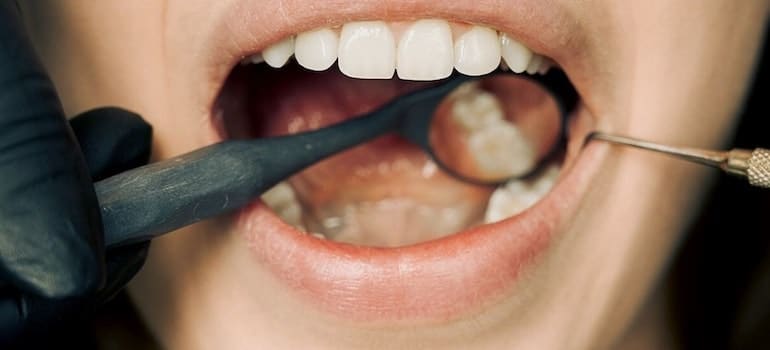For many of us, our dietary habits seem insignificant and don’t really preoccupy us all that much. After settling into some rather healthy nutritional habits, we tend to leave it at that – if at that. This might work in general, everyday life settings, but in the context of addiction eating healthy is absolutely vital. An abundance of substances can directly impact appetite and nutritional intake, which in turn affects mental and physical health. Thus, a healthy diet can help during addiction programs in West Virginia and beyond.
As pioneers among addiction treatment centers in West Virginia, we at Harmony Ridge Recovery stress this connection strongly. In this article, we’ll establish the connections between diet and rehab, explain how nutritional guidance can help every step of the recovery process, and finally offer some general nutritional advice.
So without further ado, let’s get started.
The Relation Between Diet And Rehab
First and foremost, you may be unaware of where exactly diet and rehab overlap. This is quite a specialized subject, so it’s perfectly understandable that this isn’t often general knowledge.
In brief, ample Substance Use Disorders (SUDs) impact one’s diet – both directly and behaviorally. Mental health disorders, which very often co-occur with SUDs as dual diagnosis holds, do so as well. Lastly, long-term addiction also damages the body and prevents proper nutrient absorption, cementing addiction’s impact on one’s wellbeing.
Here we may break this connection down into 5 key points.
#1 Addiction And Appetite
First, as a fundamental connection, addiction affects appetite itself.
Caption: Drug addictions of many kinds can directly lead to weight gain or weight loss, starting with their effect on appetite.

This is mostly due to the effects of some substances themselves, such as:
- Stimulants decreasing the user’s appetite
- Depressants and sedatives increasing the user’s appetite
In addition come other, more specific effects, such as:
- Marijuana increasing cravings for food high in fats and sugars
- Alcohol causing vitamin deficiencies, as PubMed notes
- Prescription drugs used to treat eating disorders directly affecting appetite
Between the two, you can likely already see how interwoven the two are. That’s just the tip of the iceberg, however, and doesn’t begin to answer how a healthy diet can help during addiction programs in West Virginia and beyond. So let us delve deeper.
#2 Long-term Physical Effects Of Addiction
The second crucial connection comes in the long-term physical effects of addiction. Here we specifically focus on physical effects, because both mental and behavioral effects also contribute significantly.
In this regard, too, there is much to cover – and exact effects vary significantly. Inpatient alcohol rehab tends to differ significantly from outpatient cocaine rehab, for example, despite the two sharing similar nutritional problems. Across SUDs, there are such long-term effects to consider as the following:
- Organ damage. Many addictive substances cause direct damage to organs responsible for the breakdown, processing, and absorption of nutrients. Alcohol is particularly notorious for this, as it damages the pancreas and liver.
- Gastrointestinal disorders. Similarly, long-term SUDs can cause damage to the gastrointestinal tract and even lead to chronic issues. Much like the case of organ damage, such effects can severely limit the body’s ability to absorb nutrients.
- Oral health. Finally, some SUDs can cause severe oral health issues, from tooth decay to mouth and throat cancer. As AAC finds, such issues can also severely affect dietary habits, and in turn deprive the individual of proper nutrition.
Evidently, addiction impacts more than appetite; it hampers the body’s ability to receive proper nutrition as well.
Caption: Long-term addictions can have a severe impact on dental and oral health, which only worsens issues of malnutrition.

#3 Mental Health Disorders And Diet
Beyond the body comes the mind, so outlining the effects of mental health disorders on nutrition is equally vital. Moreover, this may best inform just how a healthy diet can help during addiction programs in West Virginia and beyond.
In brief, there is a wide array of mental health disorders that can inform dietary habits. The most prevalent ones among them, as far as dual diagnosis goes, are:
- Anxiety
- Bipolar disorder
- Depression
- Eating disorders
- Personality disorders and borderline personality disorders
- Schizophrenia
- Trauma
- Autism
- OCD
- ADHD
- PTSD
Such disorders tend to be hard to deal with on their own, but they overlap with SUDs very often too. In fact, NIDA finds that 37.9% of adults with SUDs also have mental illnesses, and 18.2% of adults with mental illness also have an SUD.
Therefore, one can imagine how hard it can be to treat both SUDs that affect appetite and mental health disorders that inform it. By the same token, however, that’s exactly why case management for such cases tends to strongly focus on dietary guidance. With proper nutrition being so vital toward addressing both and ensuring the individual’s wellbeing, treatment providers simply cannot overlook it.

#4 Behavioral Changes Of Addiction
Another, crucial part of diet and addiction comes in behavioral changes. Beyond physical and mental health, addiction kindles new, often destructive behavioral patterns. Examples of this can include:
- Fixation on consuming the substance, which can cause financial troubles and impact one’s ability to prepare proper, regular meals
- Irregular eating and sleeping patterns, which can further fuel mental health issues and cause dietary irregularities
- Intentionally skipping meals to maintain a substance’s high for longer, more commonly for stimulants abuse
For these reasons, before a healthy diet can help during addiction programs in West Virginia and beyond, therapies need to account for such behavioral changes. While the exact focus of such therapies on nutrition varies across treatment providers, many addiction therapy centers now offer the following behavioral therapies which offer this option:
- Cognitive Behavioral Therapy (CBT)
- Dialectic Behavior Therapy (DBT)
- Rational Emotive Behavior Therapy (REBT)
- Eye-Movement Desensitization and Reprocessing (EMDR)
Of course, behavioral therapies can only be truly effective after both physical and mental health have been restored. This is why such therapies tend to truly come into focus during intensive outpatient programs and later rehab stages.

#5 Withdrawal And Nutrition
Finally, the withdrawal phase can also present a combination of the above challenges all in itself. Whether one attempts to detox by themselves or receives medication-assisted treatment (MAT), withdrawal can uniquely impact their diet.
In brief, withdrawal can present an array of challenges all of its own, including:
- Physical symptoms. For many, withdrawal symptoms can include nausea, vomiting, and congestion or diarrhea. Even in moderate severity, such symptoms can further inhibit proper nutrition. In more extreme cases, they can lead to dehydration, which can present serious health risks.
- Psychological symptoms. In addition, withdrawal can be extremely challenging psychologically. Among other symptoms, many individuals experience irritability, depression, anxiety, and sleeping troubles. These too can severely impact one’s dietary habits, and discourage them from following a proper meal plan.
Moreover, this is all before Post-Acute Withdrawal Syndrome (PAWS) may appear. Verywellmind finds that, if it does, it can often exacerbate such issues – including malnutrition and poor self-care.

How A Healthy Diet Can Help During Addiction Programs in West Virginia
Now, having touched on all of the above we can discuss just how proper nutrition actually helps with addiction programs.
To do so, it might be more concise and convenient to break down the typical journey to recovery down. By following the average program sequence, we might best explain the value of a healthy diet from start to finish.
#1 Inpatient Programs
The first step for all but the mildest cases, inpatient programs take place in a clinical environment. They serve to offer a safe setting, clear of potential distractions and triggers of harmful behavior. As they do, they will typically offer:
- MAT to facilitate detox
- Dual diagnosis to identify co-occurring mental health disorders and inform subsequent rehab
- Pharmacotherapy as needed
Should you seek inpatient drug rehab in WV, such services are typically guaranteed. Still, every treatment provider’s offerings will differ, so we strongly encourage you to do thorough research in advance.
Regarding nutrition specifically, inpatient programs are where the found al staff to:

- Identify the extent of malnutrition and its causes
- Begin reversing immediate physical detriments of addiction, such as weight loss or weight gain
- Start informing the individual of the value of proper nutrition and encouraging healthy behavioral habits
Of course, while a healthy diet can help during addiction programs in West Virginia, this is not the stage where nutritional guidance can really shine. The individual will be just beginning their journey, so detox, initial abstinence, and psychotherapy will be the key focus.
However, even early withdrawal can have tremendous effects on appetite and nutrition. In addition, inpatient programs set the foundation for all programs that follow. Thus, it’s always best to keep this factor in mind from as early on as possible.
#2 Partial Hospitalization Programs
A step-down service offered after inpatient programs, Partial Hospitalization Programs then bridge clinical care with outpatient therapy. At this stage, rehab will begin to focus on:
- Individual therapy to continue addressing unhealthy behaviors
- Medication management, where necessary
- Plans for aftercare, depending on the individual’s unique needs
While not a standard part of rehab, there are ample options for partial hospitalization rehab in WV. It can be necessary in cases where the individual still needs some clinical care but is also ready to progress.
At this stage, dieticians can:
- Continue to address malnutrition, now alongside a deeper focus on psychotherapy
- Begin to integrate their guidance into a broader set of services, such as vocational ones
- Cater to the end of pharmacotherapy and potential changes in appetite or behavior
As they do, it’s this phase where a healthy diet can help during addiction programs in West Virginia more clearly. In the simplest of terms, that’s because this phase can begin to truly focus on mental health, which diet affects. Indeed, NIH finds that:
“[Mood and mental health] disorders, in turn, may have a negative impact on users’ recovery, which will lead to relapse. Essential micronutrients play an important role in mood regulation by the brain, and deficiencies or insufficient intakes of these nutrients, in addition to food deprivation, correlate with poor mental health, especially depression.”
#3 Outpatient Programs
With enough progress, one may then proceed to outpatient programs, typically divided into intensive outpatient programs (IOPs) and outpatient programs (OPs). Such programs allow for full residential freedom, leaving the individual to focus entirely on therapy. Medication may still be prescribed, of course, depending on each case’s needs – but outpatient programs denote an end to clinical services.

While the exact focus of such programs may differ, the typical intensive outpatient program West Virginia offers will:
- Introduce group counseling, including family therapy
- Provide education, from skill development and relapse prevention techniques to stress management and nutritional guidance
- Continue or finalize pharmacotherapy where needed
In the context of diet, this phase is absolutely crucial. That’s because NEDA finds a very considerable overlap between SUDs and eating disorders:
“Up to 50% of individuals with eating disorders use alcohol or illicit drugs, a rate five times higher than the general population. Up to 35% of individuals who were dependent on alcohol or other drugs have also had eating disorders, a rate 11 times greater than the general population.”
As such, having tackled major underlying problems, it is this phase where a healthy diet can help during addiction programs in West Virginia – as common eating disorders are best addressed with psychotherapy, as Verywellmind notes:
“Ultimately, the “medication” of choice for an eating disorder is food and normal eating as well as finding a way to cope with the unhelpful or distorted thoughts surrounding food, eating, and body image.”
Understandably, it is outpatient programs where such a focus can truly take hold. And as it does, proper prior guidance on matters of nutrition can continue to benefit the individual physically and mentally.
Foods And Habits To Consider During Rehab
Finally, here we can touch on some general nutritional advice ourselves. Indeed, alcohol rehab centers in WV will often offer plenty of guidance, given the heavy overlap between alcohol and malnutrition. Other treatment providers will as well, especially in cases of co-occurring mental health disorders and eating disorders. Still, for the sake of accessible information, we believe a cursory overview of nutritional guidelines can only help our readers.
#1 Balancing Caloric Sources
First, it is crucial to diversify your diet as regards where you get calories from. This is not as simple as just avoiding sugars – even though that is good advice in itself. Instead, Heretohelp suggests the following caloric intake distribution for diets for recovery:
- Complex carbohydrates (eg. grains, fruits and vegetables) – 50% to 55%
- Moderate protein (eg. meat or fish, or other high-protein foods) – 15% to 20%
- Fat choices (eg. good oils and fish) – 30%
In addition, they recommend regular intake of calcium through dairy products or other calcium-rich foods. In combination, these should set the proper foundations for a healthy diet.
#2 Maintaining Healthy Eating Habits
In turn, you should ensure you remain consistent; a healthy diet can help during addiction programs in West Virginia, but only if you uphold it. This is the bedrock of all diets, after all, even outside of rehab contexts.
In this regard, the Gateway Foundation suggests:
- Maintaining a balanced diet, with enough whole grains and fiber but little fat and sodium
- Eating only at planned times
- Avoiding caffeine and sugar where possible
- Taking vitamin or mineral supplements when necessary
If possible, quitting smoking at this stage should also warrant a mention. However, nicotine addiction is also quite severe; withdrawal symptoms can fuel behavioral changes and cravings, and, most famously, include an increased appetite. So, we can only encourage you to try and do so with professional assistance.

#3 Going The Extra Mile
Finally, you may enhance your diet and benefit your well-being by adopting a healthier lifestyle. This includes both nutritional choices and others, as MedlinePlus suggests:
- Remaining hydrated during the day and in-between meals
- Getting physical activity and sufficient rest
- Staying in touch with counselors and support groups
Of course, as they also note, all such choices should always be guided and supervised by professional treatment providers. This collection of information does not intend to encourage DIY approaches to diet during rehab, but only to provide insights. Every case of addiction differs, and so do every individual’s nutritional needs – so always consult professionals before committing to change.

Rehab And A Healthy Diet Go Hand-in-hand
In summary, it should now be clear just how a healthy diet can help during addiction programs in West Virginia. Addiction significantly overlaps with mental health problems and eating disorders, and may often affect appetite and eating habits as well. Addressing these is crucial, and maintaining proper and regular nutrition plays a vital role in restoring physical and mental health. From a heightened sense of confidence to lowering the risk of relapse, a proper diet is instrumental to successful recoveries.
For more information on the journey to recovery, you may explore our other content at your leisure. If you have more specific questions, or are now ready to seek help with substance abuse and addiction, please feel free to contact us today. At Harmony Ridge we truly believe every case of addiction is unique, and it is our mission to offer everyone with an SUD guidance and help toward an addiction-free life.



